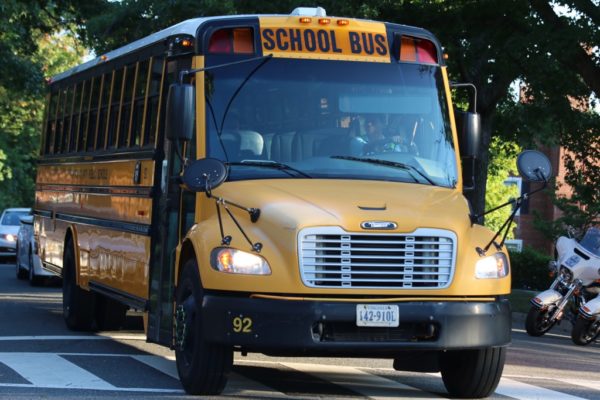The U.S. Congress may be mulling permanent daylight saving time, but Arlington Public Schools is not holding its breath.
Last week, the Senate passed a bill to make daylight saving time permanent and end the biannual tradition of changing clocks to “spring forward” and “fall back.” Should the shift clear the House of Representatives and the White House, it would take effect next year.
Sticking to one time year-round has relatively broad support among Americans, businesses and health experts, but there is disagreement over whether daylight saving time, which is used from March to November, or standard time, used for the remainder of the year, would be better.
It appears some House members, surprised by the move, are trying to stop the clock until more research is done.
A lot of people these days think permanent DST is a good idea. The US tried it in the early ‘70s and people grew to HATE it.
Most common complaint? Kids had to go to school in the dark, and there were lots of dangerous, even fatal accidents. https://t.co/t5q41N4aOb https://t.co/x9Atuu0okr
— Andrew Beaujon (@abeaujon) March 15, 2022
Although timely, the national debate will not factor into a review of bell times in Arlington Public Schools. The school system is instead considering how to modify start and end times to add ten minutes of instruction to the school day for all grade levels and streamline start and end times.
“Currently, there are 8 different start/end times; the goal is to reduce them to three (or no more than four) for the 2022-23 School Year,” according to a webpage for the study. “By reducing the number of start/end times, APS aims to optimize transportation services and identify efficiencies that will improve APS operations, streamline school bus routes and schedules, and reduce costs.”
APS has come up with five different scenarios — with start and end times varying by school building and grade level — but no scenario include adjustments for a potentially permanent daylight saving time, we’re told.
“APS has not considered any additional options outside of the five scenarios posted on our webpage,” spokesman Frank Bellavia said. “We are soliciting input on five different scenarios with start times ranging from 7:30 a.m. to 9:20 a.m. and end times of 2:20 p.m. to 4:20 p.m.”
Currently, school starts between 7:50 a.m. and 9:24 a.m. and ends between of 2:24 p.m. and 4:06 p.m.
APS is encouraging students, their family members and staff to respond to surveys with their preferred start and end times by this coming Monday (March 28). The surveys also gauge what respondents like or dislike about earlier and later start times.
The responses will figure into a final recommendation, made by a group of APS employees and parents. The recommendation will be presented to the School Board as an information item on April 28 and is slated for a vote on May 12.
Proponents of later start times say it allows kids to sleep in, which improves their mental and physical health and attendance. Additionally, it would result in fewer days of walking to school in darkness, especially under permanent DST.
Arguments for earlier start times include more time for after-school activities and reduced childcare costs for parents. Later start times could also mean students have less time for homework while athletes have a harder time getting to games against other school divisions.


